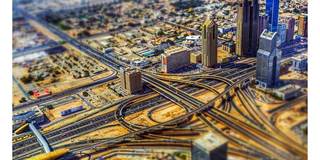The region's struggles over sharia, the Sunni-Shia divide, Islamist jihadists, and the never-ending Israel-Palestine conflict are symptoms of unmet needs. Ensuring long-term prosperity and stability in the Islamic world requires high-quality education, advanced technologies, and a greater emphasis on sustainable development.
NEW YORK – The United States, the European Union, and Western-led institutions such as the World Bank repeatedly ask why the Middle East can’t govern itself. The question is asked honestly but without much self-awareness. After all, the single most important impediment to good governance in the region has been its lack of self-governance: The region’s political institutions have been crippled as a result of repeated US and European intervention dating back to World War I, and in some places even earlier.
One century is enough. The year 2016 should mark the start of a new century of homegrown Middle Eastern politics focused urgently on the challenges of sustainable development.
The Middle East’s fate during the last 100 years was cast in November 1914, when the Ottoman Empire chose the losing side in World War I. The result was the empire’s dismantling, with the victorious powers, Britain and France, grabbing hegemonic control over its remnants. Britain, already in control of Egypt since 1882, took effective control of governments in today’s Iraq, Jordan, Israel and Palestine, and Saudi Arabia, while France, already in control of much of North Africa, took control of Lebanon and Syria.

NEW YORK – The United States, the European Union, and Western-led institutions such as the World Bank repeatedly ask why the Middle East can’t govern itself. The question is asked honestly but without much self-awareness. After all, the single most important impediment to good governance in the region has been its lack of self-governance: The region’s political institutions have been crippled as a result of repeated US and European intervention dating back to World War I, and in some places even earlier.
One century is enough. The year 2016 should mark the start of a new century of homegrown Middle Eastern politics focused urgently on the challenges of sustainable development.
The Middle East’s fate during the last 100 years was cast in November 1914, when the Ottoman Empire chose the losing side in World War I. The result was the empire’s dismantling, with the victorious powers, Britain and France, grabbing hegemonic control over its remnants. Britain, already in control of Egypt since 1882, took effective control of governments in today’s Iraq, Jordan, Israel and Palestine, and Saudi Arabia, while France, already in control of much of North Africa, took control of Lebanon and Syria.